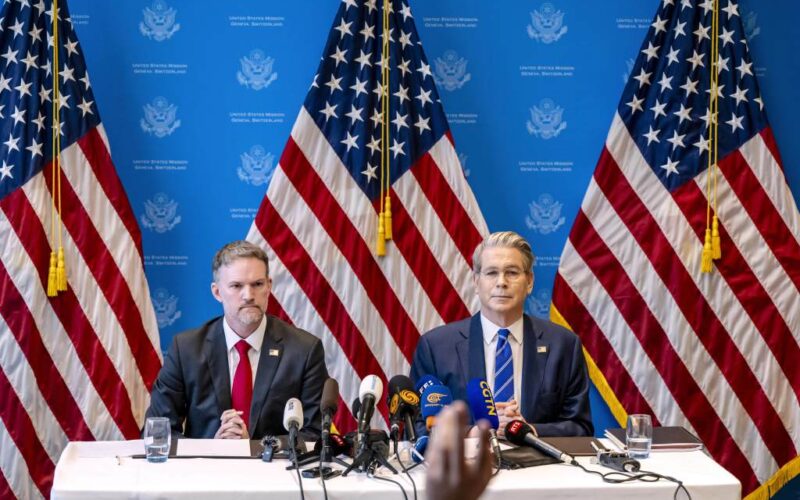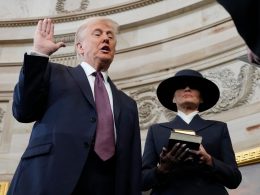Only in the upside-down world of Donald Trump’s second term can 30% import duties on our largest trading partner be considered a positive sign, with the stock market soaring. So yes, the Trump administration and China announced a deal to lower tariffs. But it’s only slated to last 90 days, and it is merely lowering the tariff rate from an insane 145% to a still-extremely-high 30%.
The deal also does not appear to include a new de minimis exception for goods under $800, meaning everything, no matter how cheap, is subject to the surcharge.
We know that we must be truly through the Looking Glass for this to be considered good news, with the markets rallying more out of relief than enthusiasm. That’s certainly not enough to prevent prices from going up significantly for American consumers, nor to head off the likelihood that there will be shortages of basic goods, as foreign imports have slowed significantly over the past several weeks of the aggressive tariff posture.
Even if importers begin to stock up on Chinese-origin goods again immediately, it will take weeks for those replenishments to arrive, which will become extremely noticeable to consumers once importers and retailers run out of their existing domestic stock of everything from personal electronics to toys.
We and frankly all observers covering this absurd back-and-forth should continue to remind the public that none of this needed to happen. Trump came in with what was considered globally the best COVID bounce-back economy and decided to blow up global trade based on what appears to be a very shaky understanding of its fundamental principles. In a recent Oval Office scrum, he responded to a question about the drying up of imports by saying it means “we lose less money” and “China was making over $1 trillion.”
The only way to interpret this is that Trump somehow believes that the United States is effectively paying its trade deficit to China, as opposed to millions of U.S. businesses and families engaging in hundreds of thousands of transactions per day with innumerable foreign companies that are selling them affordably goods they want.
Markets are not perfect and there is exploitation and waste, and it is perfectly valid to care about the collapse of domestic industry, which has devastated communities around the country, even as other sectors have immensely profited over the last several years.
Yet Trump is ignoring some of the clear solutions for this collapse — including reversing course on a big push towards the undeniable growth industry of renewable energy, which could not only provide thousands of jobs but cement U.S. energy independence and help combat the scourge of climate change — and instead banking on some kind of shock therapy that won’t work.
In an interview with Bloomberg after the announcement, Treasury Secretary Scott Bessent said that the new tariff levels were “obviously a floor.” Who is this obvious to, Scott? Neither importers nor investors nor logistics people nor regular consumers can figure out what it is that the administration will be doing on any given day, which makes it impossible to prepare in the long-term. If that’s true, though, Bessent is making it clear that Americans should expect higher prices indefinitely. So much for the president that won in large part on public dissatisfaction with inflation.








